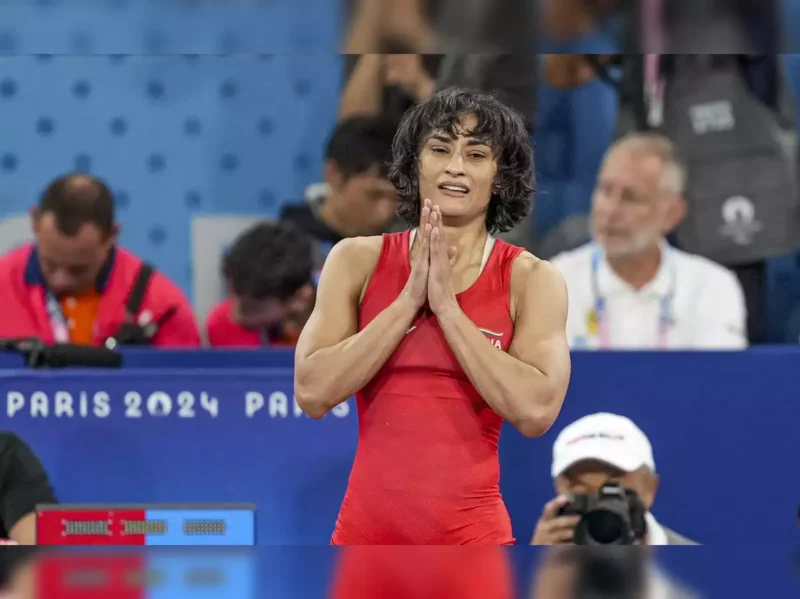The Paris Olympics 2024 will be remembered not just for its sporting triumphs. But also for the harrowing ordeal endured by Indian wrestling star Vinesh Phogat.
Her disqualification from the women’s 50kg freestyle final due to being 100 grams over the weight limit. Has sparked a global conversation about the extreme measures athletes undertake to make weight.
The Night Before the Final: A Weighty Dilemma For Vinesh Phogat
As Vinesh Phogat prepared for the highly anticipated Olympics final, a sudden spike in her weight posed a significant challenge. The wrestler, known for her discipline and dedication. Found herself grappling with a situation that threatened to derail her carefully planned strategy. Despite her adherence to a prescribed diet and training regimen. The unforeseen increase in weight necessitated quick thinking and decisive action to rectify the issue before the final match.
The Impact of Dietary Choices: Glass of Juice, Fluid, and Light Snacks
Phogat’s reliance on a glass of juice, fluid intake, and light snacks as part of her dietary routine is a common practice among athletes aiming to maintain optimal performance levels. These choices are often strategic, providing the necessary energy and nutrients while managing calorie intake to meet weight requirements. However, the delicate balance between nutrition and weight management can be disrupted by various factors. As evidenced by Phogat’s experience on the eve of the Olympics final.
Sudden Weight Loss and Then Gaining It Back: What Causes It?
The revelation of these extreme measures has brought the issue of weight cutting in wrestling to the forefront. The sport, like many others, has strict weight categories. To qualify for a lower weight class, athletes often resort to drastic measures, including dehydration and calorie restriction. The process can be physically and mentally taxing, with potential long-term health consequences.
Phogat’s case has ignited a debate about the ethics of weight cutting. Critics argue that such practices are dangerous and should be banned. Others point out that weight categories are a fundamental part of many sports and that athletes must find ways to manage their weight within the rules.
Vinesh Phogat: The Mental and Physical Toll of Last-Minute Adjustments
The night before the Olympics final, Vinesh Phogat faced not only a physical challenge but also a mental one. The need to make sudden adjustments to her weight and dietary intake added pressure to an already high-stakes situation. The mental fortitude required to stay focused and composed amidst such uncertainty is a testament to Phogat’s resilience and determination as a top athlete.
Vinesh Phogat A Olympics: Is It Safe To Go For Extreme Weight Loss?
Vinesh Phogat’s experience on the night before the Olympics final serves as a valuable lesson for athletes and sports enthusiasts alike. It underscores the importance of adaptability, resilience, and preparation in the face of unforeseen challenges. As Phogat reflects on this incident and prepares for future competitions, her dedication to her craft and unwavering commitment to excellence remain unwavering, inspiring a new generation of athletes to strive for greatness.
Read Also – Olympic Medalist Mane Khelif: 5 Signs of High Testosterone In Female
Vinesh Phogat’s weight fluctuations on the night before the Olympics final offer a glimpse into the demanding world of competitive sports. The incident highlights the intricate balance between performance optimization and weight management that athletes must navigate, underscoring the relentless pursuit of excellence that defines champions like Phogat. As the wrestling community reflects on this episode, the focus shifts to the resilience and determination displayed by athletes in the face of adversity, embodying the true spirit of sportsmanship and dedication to their craft.











